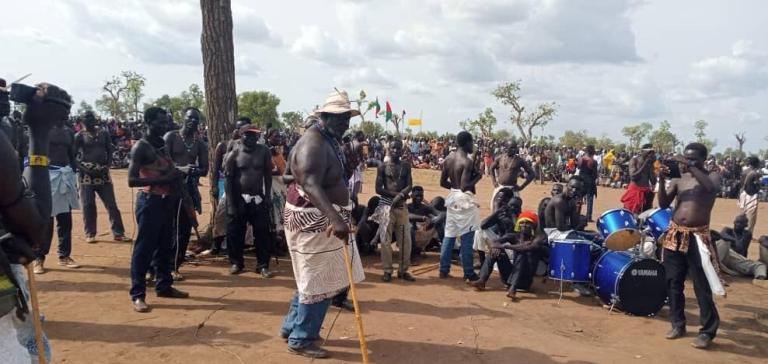SPLM-N Agar calls to allocate 80% of power in Sudan’s Two Areas to armed groups

November 13, 2019 (KHARTOUM) – The SPLM-North led by Malik Agar called for broad regional autonomy for Sudan’s Two Areas, in addition to 80 per cent of the legislative and executive power for the armed movement during the next ten years.
The SPLM-N Agar Wednesday issued a statement to announce the resolutions adopted in the Movement’s leadership conference, convened from 16 October to 13 November 2019.
Also, it comes ahead of negotiations on peace in the Blue Nile and South Kordofan with the Sudanese transitional government in Juba, in parallel with the talks between Khartoum and the other faction led by Abdel Aziz al-Hilu which calls for self-determination.
The final communiqué of the conference reiterated the SPLM’s rejection of the right of self-determination for the two regions pointing that it “would not lead to lasting peace”
Also, it stressed that the broad autonomy guarantees the right to legislate for the two regions and thus ensures that they do not apply legislations that are incompatible with the population of the Two Areas.
“We Demand broad autonomy for the two regions, including the right to legislate and remove laws that are incompatible with the cultural and religious diversity of the Two Areas,” said the communiqué.
“We Demand that 80% of the legislative and executive authority for the armed struggle forces in the Two Areas, 20% for the Forces for Freedom and Change; that 70% of the resources produced in the Two Areas for 10 years be allocated for their development and 50% as a fixed percentage thereafter,” said the SPLM-N Agar.
Recently, the SPLM-N Agar Deputy Chairman Yasir Arman slammed the demand for self-determination by the SPLM-N al-Hilu saying it makes the vision of the New Sudan as a “mechanism to disunite” the country.
“The secular state is a strategic programme of the SPLM but is not a condition for ending the current war,”,said the communiqué, stressing that the large autonomy besides protecting the population of the Two Areas from the Islamic legislations will enable the Movement to continue the struggle with the rest of the Sudanese for a state not bound by religious rule.
The constitutional conference which will by the end of the transitional conference determine the fate of Islamic criminal code and the place of the religion in the Sudanese state.
The FFC forces including the National Umma Party accept the separation of religion from the state with reservation dealing with the personal status code for the Muslims.
The conference called for the establishment of a Sudanese Confederation between the two independent North and Sudan, adding that this confederation will form the basis of a broader regional union.
(ST)
